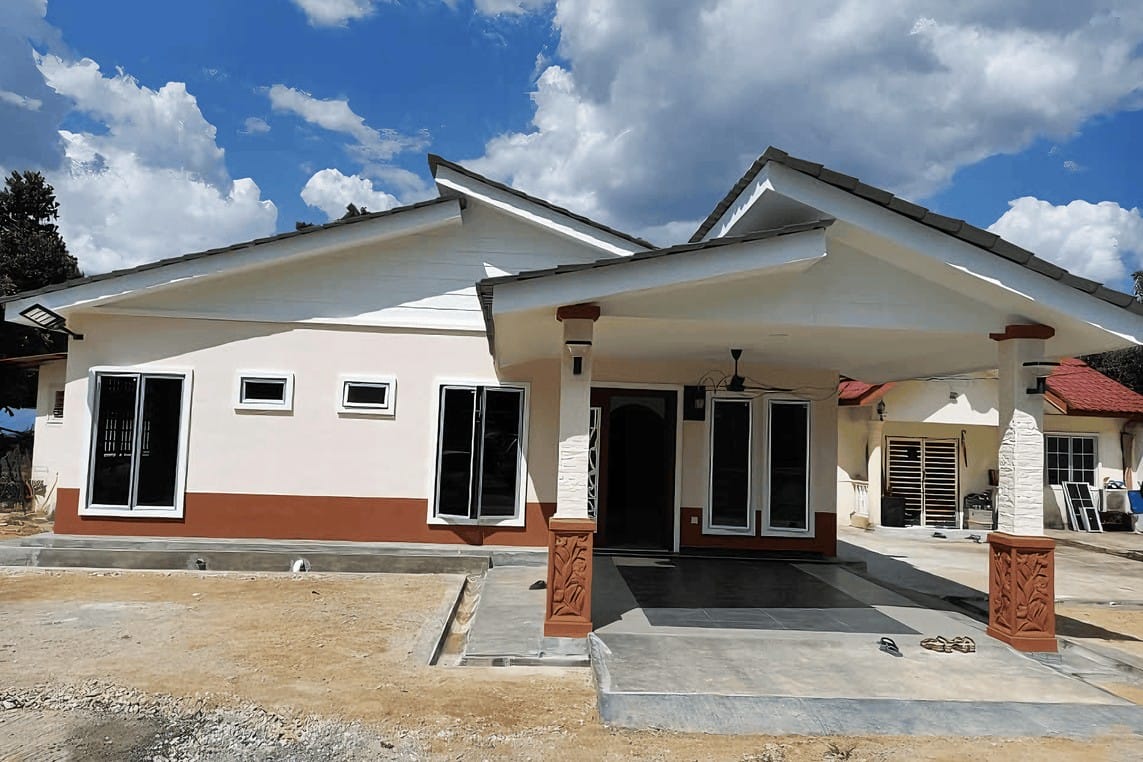Building your dream project in Malaysia, whether it’s a cozy home, an innovative startup, or a community facility, can be an exciting journey. But let’s be real—funding can often be the biggest hurdle we face. Luckily, there’s a treasure trove of hidden government grants just waiting to be discovered! These grants can provide the financial boost needed to turn your vision into reality, but they aren’t always easy to find. In this article, we’re diving into the nitty-gritty of uncovering those elusive funding opportunities. So, grab your notepad as we explore how to navigate the landscape of government grants that can support your building ventures and help you make your mark. Let’s discover together what’s out there and how you can tap into these valuable resources!
Unlocking Opportunities in Local Governments
When diving into the world of local government grants, the first step is to familiarize yourself with the various funding sources available. Many local governments allocate budgets specifically for community development, infrastructure improvements, and sustainable building ventures. These grants can often go unnoticed, buried beneath layers of bureaucratic red tape. Start by reaching out to your local council or government office, as they can provide valuable information on grant programs tailored to your region.
After you’ve identified potential grant opportunities, it’s crucial to understand the eligibility criteria and application processes. Take note of key factors that can increase your chances of success, including:
- Alignment with community priorities
- Demonstrating sustainability in your building projects
- Evidence of community support and engagement
Each grant will have unique requirements, so make sure to tailor your proposals accordingly, showing how your project benefits the local community. Some grants might even offer funds for specific elements, like green technologies or heritage conservation, so don’t hesitate to get creative in your applications!
keep an eye out for partnerships and collaborations that can enhance your application. Working alongside local non-profits, businesses, or educational institutions can bolster your proposal’s impact. Consider creating a simple table of potential partners and the distinct advantages they bring to your project, like this:
| Partner Type | Advantages |
|---|---|
| Local Non-Profit | Community engagement and outreach |
| Local University | Research support and innovation |
| Local Business | Funding and resource sharing |
By pooling resources and knowledge, not only will your application stand out, but you will also create a more significant opportunity for community impact. So get out there, explore your options, and take your building ventures to the next level!

Navigating Online Databases for Grant Information
Diving into the world of online databases for grant information can seem a bit overwhelming at first. However, once you familiarize yourself with a few key platforms, you’ll find a wealth of resources at your fingertips. Some essential databases to consider include:
- MyGovernment: A centralized platform that provides access to various government services and grants available in Malaysia.
- Jabatan Kebajikan Masyarakat (JKM): This site focuses on grants available for community development and social services, perfect for building ventures aimed at societal upliftment.
- SME Corporation Malaysia: Offers information on grants specifically for small and medium enterprises; invaluable for new building projects.
When searching through these platforms, never underestimate the power of keywords. Use terms that align closely with your project’s goals. For instance, if you’re focusing on eco-friendly building practices, try terms like “sustainable development grants” or “green building initiatives”. Additionally, consider setting up alerts on these databases to get notified whenever new grants are announced. Regularly checking these sites will help you stay ahead of any opportunities that may align with your building ventures.
Lastly, it’s beneficial to track your findings in a well-organized manner. Here’s a simple table to illustrate how you might categorize various grants:
| Grant Name | Focus Area | Status |
|---|---|---|
| Community Improvement Fund | Social Development | Open for Applications |
| Green Technology Fund | Eco-Friendly Building | Closed |
| SME Building Enhancement Grant | SME Support | Application Period Opens Soon |

One of the most effective ways to tap into resources for your building ventures is by establishing connections with local community organizations. These groups often have a pulse on what’s happening in your area and can guide you towards available funding opportunities you may not be aware of. Whether it’s a non-profit dedicated to urban development or a neighborhood improvement coalition, these organizations can offer valuable insights and even collaborate on initiatives that require funding.
Engaging with community organizations also opens doors to networking and sharing experiences with fellow entrepreneurs. Through events, workshops, and forums hosted by these groups, you can meet others who have successfully navigated the grant landscape. Consider reaching out for mentorship or partnership opportunities, which can bolster your proposals and add credibility. Here are some types of organizations you might want to connect with:
- Local Chambers of Commerce: They provide resources and can help you connect with other businesses.
- Non-Profit Organizations: Many have programs aimed specifically at supporting community development.
- Governmental Agencies: They often partner with community groups for grant distribution.
In addition to direct outreach, don’t underestimate the power of social media and online platforms. Many community organizations share open grant opportunities and resources on their social channels. By following them, you can stay informed about upcoming workshops or information sessions that can deepen your understanding of the grant application process. Here’s a quick table illustrating some community organizations that often provide assistance:

Understanding Eligibility Criteria and Application Processes
When diving into the world of government grants for your building projects, the first thing you need to get a handle on is what makes you eligible. Each grant has its specific requirements, so it’s crucial to read through the criteria carefully. Some common factors often include:
- Project Type: What type of building project are you planning? Different grants cater to residential, commercial, or community projects.
- Location: Sometimes, grants are restricted to specific regions or states, so ensure your project aligns with these geographic limitations.
- Business Type: Whether you’re an individual, a group, or an established business can play a big role in your eligibility.
Next up, the application process can be a maze, but with the right approach, you can navigate it with ease. Often, you’ll have to fill out detailed forms, submit documentation proving your eligibility, and possibly even provide a project proposal. It’s helpful to keep in mind the following steps:
- Gather Documentation: Prepare your business registration, project blueprints, and financial statements early on.
- Define Your Goals: Clearly articulate how your project aligns with the goals of the grant. This is your chance to shine!
- Submit Online: Most applications are now processed digitally, so familiarizing yourself with the online portal can save you time.
While the path can seem daunting, having a clear checklist and understanding of what’s needed will set you up for success. A little tip: keep track of submission deadlines! Missing a date could mean waiting for another funding cycle. Some grants may even offer workshops or web seminars to help applicants, so don’t hesitate to reach out for assistance. Here’s a simple overview to keep in mind:
| Grant Component | Description |
|---|---|
| Eligibility | Criteria you must meet to apply. |
| Application Process | Steps you need to follow to submit your application. |
| Follow-Up | What to do after submission, like checking status. |
Building Relationships with Grant Administrators
Engaging with grant administrators can significantly enhance your chances of securing funding for your building projects. These individuals are not only gatekeepers to financial resources but also valuable storytellers that share insights about the ever-evolving landscape of grants. To develop a rapport, it’s important to approach them with genuine interest in their work and the missions of their organizations. Don’t just view them as a means to an end; see them as partners who can help guide you through the complexities of the grant application process.
Start by respecting their time and expertise. When you contact them, be concise and specific about your needs and how your project aligns with the goals of their grant program. Here are a few tips to keep in mind:
- Be open and honest about your project’s objectives.
- Ask insightful questions that show you’ve done your homework.
- Follow up professionally if you don’t get an immediate response.
Maintaining a relationship doesn’t stop after the grant application. Once you get to know your grant administrator, share updates on the project’s progress, even after the funding is received. Sending periodic updates makes you relatable and shows appreciation for their support. Here’s a simple table showing how you can maintain this relationship:
| Action | Frequency |
|---|---|
| Update email | Quarterly |
| Invite for site visits | Annually |
| Feedback request | At project milestones |

In this digital age, social media is more than just a platform for connecting with friends and sharing memes. For those in the building industry, it can serve as a powerful tool to uncover hidden government grants. By following key industry leaders, joining relevant groups, and engaging in conversations, you can tap into a wealth of information. The right connections could lead you to discussions about funding opportunities that you might not find through traditional channels.
Networking isn’t just about exchanging business cards; it’s about building relationships that yield beneficial insights. Attend local workshops or online webinars related to construction and grants, where you can meet like-minded individuals who share your goals. Here are a few types of groups to consider following on platforms like Facebook, LinkedIn, or even Twitter:
- Industry-specific Groups: Join communities focused on construction, real estate, or government contracting.
- Local Business Networks: Participate in regional associations that often discuss funding options.
- Grant Writing Workshops: Engage with those who specialize in securing grants for building projects.
As you dive deeper into online networking, consider creating a simple table to track potential grant opportunities you discover. Here’s a quick example that might help you structure your findings:
| Grant Name | Description | Eligibility | Application Deadline |
|---|---|---|---|
| Smart Building Grant | Funding for eco-friendly construction projects. | Open to all registered construction companies. | March 31, 2024 |
| Community Development Fund | Support for infrastructure projects in underserved areas. | Local governments and NGOs. | June 15, 2024 |
| Innovation in Construction Grant | Encourages new technologies in building. | Start-ups and established firms. | December 1, 2024 |
This organized approach can ease the research process and help you stay on top of grant possibilities. By leveraging social media’s vast network and actively participating in discussions, you’ll find it easier to pinpoint essential resources that can help fuel your building ventures.

Staying Informed on Policy Changes and Funding Trends
To successfully navigate the maze of government funding, it’s crucial to keep your finger on the pulse of policy changes and funding trends. As these can shift suddenly, staying informed helps you seize opportunities as they arise. Consider subscribing to newsletters or following key government agencies on social media platforms. These sources often share real-time updates on grants, funding criteria, and eligibility requirements.
Another great way to stay in the know is by joining online forums or community groups where entrepreneurs and builders share insights on government grants. These platforms often become hubs for discussing recently announced funding, tips on applications, and experiences with various government programs. Listening to fellow builders can reveal hidden gems — like funding streams that aren’t widely advertised or niche programs that cater specifically to regional needs.
Lastly, don’t forget to take advantage of local workshops and seminars focused on government funding. These events present a golden opportunity to interact with representatives from funding agencies, making it easier to ask questions and clarify doubts. You might even discover regional initiatives that address local development needs. Here’s a quick overview of potential sources of information:
| Source | Type |
|---|---|
| Government Websites | Official Announcements |
| Social Media Channels | Real-Time Updates |
| Online Forums | Community Insights |
| Workshops/Seminars | Direct Interaction |

Creating a Compelling Proposal that Stands Out
When crafting your proposal, it’s essential to tailor your content to address the specific needs and priorities of the funding agency. Start by doing your homework—understand their goals, funding criteria, and previous successful projects. This will show that you are not just another applicant blindly seeking funds, but someone who is genuinely invested in aligning with their mission. Consider breaking down your proposal into easily digestible sections that highlight key points, making it seamless for reviewers to follow.
Next, emotional appeal can be your secret weapon. Share the story behind your project. Include visual elements, like photographs or graphs, to paint a vivid picture of what your venture aims to achieve. You may also want to highlight the long-term benefits of your project to the community, such as job creation, sustainability, or enhanced infrastructure. Avoid jargon and keep your language accessible, engaging the reader on a personal level to spark interest.
don’t shy away from showcasing any partnerships or collaborations that strengthen your proposal. Here’s a simple outline of what to include:
| Partnership Type | Benefits |
|---|---|
| Local Businesses | Support through resources and funding |
| NGOs | Shared knowledge and community outreach |
| Government Bodies | Credibility and potential additional funding |
By emphasizing these connections, you not only bolster your credibility but also demonstrate a broader impact on community and collaboration. A well-rounded proposal that is visually appealing, emotionally resonant, and grounded in research will undoubtedly rise above the competition.
In Summary
And there you have it! Uncovering hidden government grants for your building ventures doesn’t have to be a daunting task. With the right tools, a pinch of patience, and a dash of creativity, you can open doors to opportunities you never knew existed. Whether you’re looking to kick off a new project or expand an existing one, those grants can be the boost you need.
Remember, the key is to stay curious and keep exploring. Dive into local resources, befriend those pesky paperwork, and never hesitate to reach out for help when you need it. You never know when a chat with someone might lead you to that golden pot of funding!
So, roll up your sleeves, start digging, and who knows? Your next big building venture might just be a grant away. Happy hunting, and may your construction dreams come to life! 🌟
Source link
kontraktor rumah
bina rumah
pinjaman lppsa
pengeluaran kwsp
spesifikasi rumah
rumah batu-bata
pelan rumah
rekabentuk rumah
bina rumah atas tanah sendiri
kontraktor rumah selangor
rumah banglo




